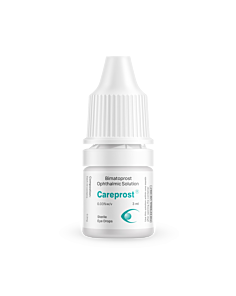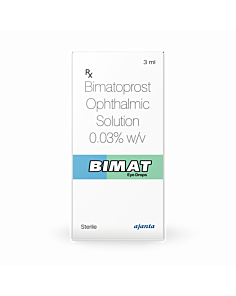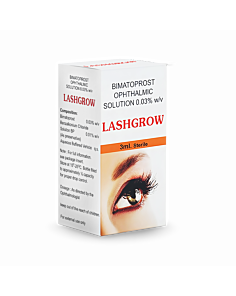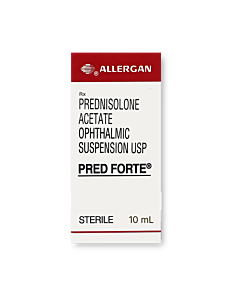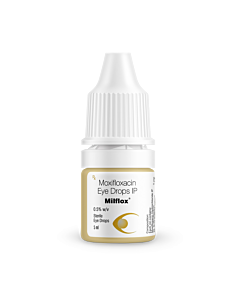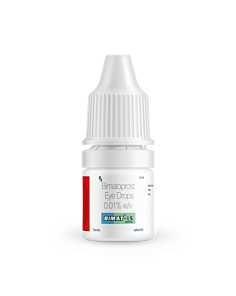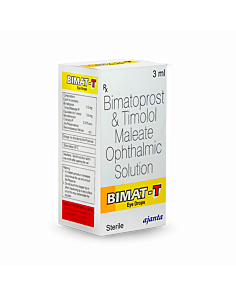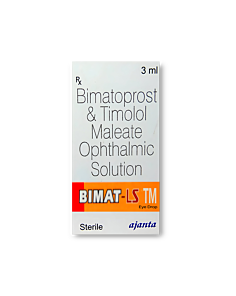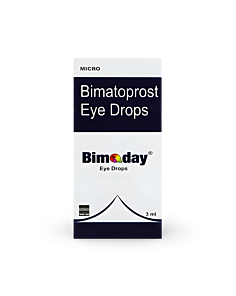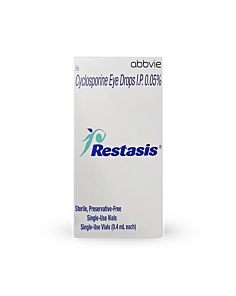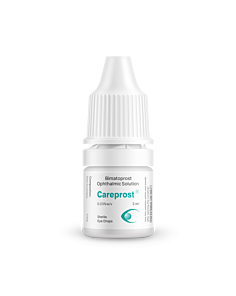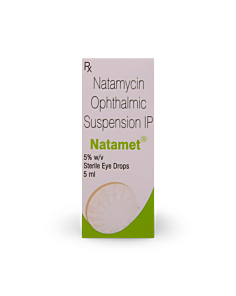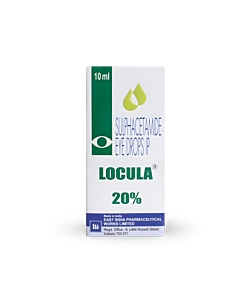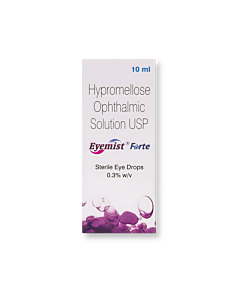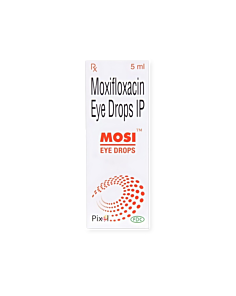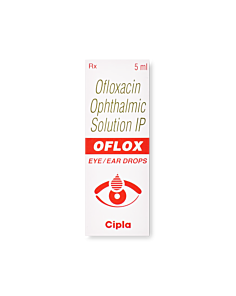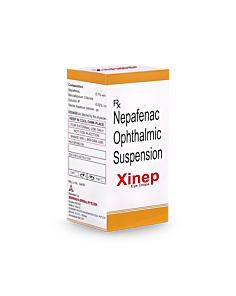Eye Care
Your eyes are the organs responsible for vision. They absorb light from the environment and transmit visual information to the brain.
Your eyesight can see approximately 200 degrees in all directions, including the front and sides (peripheral vision).
Together, the components of your eyes allow you to perceive images, motion, depth, and millions of colors....
Only half of the US citizens at high risk for vision loss visited an eye doctor within the prior year. Regular eye care can significantly impact the preservation of eyesight for millions of individuals.
Buy the best eye drops and other medicines for healthy vision at GoodRxmedicine.com. Find all the eye care medicines in one place.
Common Eye Problems
Like any other part of the human body, the eyes, too, are vulnerable to various disorders and diseases. A few commonly occurring eye problems are:
Eye infections:
Here are a few different types of infections that can affect our eyes:
- Keratitis
- Conjunctivitis (Pink Eye)
- Uveitis
- Corneal ulcer
- Blepharitis
- Sty
Glaucoma:
Glaucoma is a group of eye problems that cause damage to the optic nerve, which is essential to normal vision. This injury is frequently caused by high ocular pressure.
Glaucoma is one of the primary causes of blindness in individuals aged 60 and older. It can occur at any age, but older persons are more susceptible.
Many types of Glaucoma lack warning symptoms. Because the effect is so gradual, you may not notice a change in your eyesight until the condition has progressed.
Doctors often recommend medicated eye drops for treating Glaucoma.
Cataract:
Cataracts are a clouding of the eye's lens, usually transparent. A person's eyesight from Cataracts is comparable to seeing out of a window that has been frosted or fogged over.
Reading, driving a car (especially at night), and even seeing the expression on a friend's face can all become more difficult for a person with Cataracts.
Most Cataracts develop quite gradually and, at first, do not cause noticeable vision loss. On the other hand, Cataracts will cause your vision to deteriorate slowly over time.
Improved lighting and spectacles can be helpful at the beginning stages of Cataract treatment.
Cataract surgery, however, can be necessary if your visual impairment makes it difficult for you to carry out daily tasks.
However, Cataract surgery is an effective and relatively safe treatment.
Diabetic Retinopathy:
Diabetes can induce Diabetic Retinopathy, an eye disorder leading to vision loss and blindness.
It affects retinal blood vessels, the light-sensitive layer of tissue in the back of your eye).
A dilated eye exam should be performed yearly if you have Diabetes. Initially, Diabetic Retinopathy may have no symptoms, but detecting it early can allow you to protect your vision.
Managing your Diabetes by remaining physically active, eating healthily, and taking medication can prevent or postpone vision loss.
Blurred vision (Refractive errors):
A common issue that affects the eyes is called refractive error. This condition manifests itself when the eye cannot focus on images from the outside environment.
Vision becomes blurry due to refractive errors; this blurriness might be so severe that it leads to visual impairment.
The following are the top four most common types of refractive errors:
- Astigmatism: Vision distortion caused by an abnormally shaped cornea, the transparent covering of the eyeball
- Presbyopia: This age-related condition, which causes difficulties reading or seeing at arm's length, is universal
- Myopia: The inability to view distant objects. Also known as nearsightedness
- Hyperopia: Also known as farsightedness, the failure to view close objects
Refractive faults cannot be prevented but can be detected and treated using glasses, contact lenses, or refractive surgery.
If rectified in time and by eye-care professionals, they do not impair the entire development of an excellent visual function.
Eyesight can be improved in various ways, depending on the specific nature of the issue, the age of the person receiving treatment, and the requirements of the work or activity being carried out.
Visit an eye specialist for the best eye care tips and remedies.
Symptoms of Eye Problems
Here are a few symptoms that you may experience if you have an eye infection or some other eye-related health condition:
- Change in iris color
- Wavy or crooked appearance to straight lines
- Crossed eyes
- Redness around the eyes
- Veil obstructing vision
- A dark spot in the middle of the vision
- Unusual sensitivity to light or glare
- Difficulty focusing on near or distant objects
- Sudden loss of vision
- Growing bump on the eyelid
- Double, cloudy, or blurred vision
- Spots in your field of vision
- Dry eyes with itching or burning
- Loss of peripheral vision
- Excess discharge or tearing
- Inability to close an eyelid
- Eye pain
- Halos (colored circles around lights) or glare
- Floaters or flashers
Common medicines for Eye Problems
Bimat 0.03% w/v
Bimat eye drops are one of the best eye care solutions. Bimat 0.03% contains Bimatoprost Ophthalmic Solution recommended for treating Open Angle Glaucoma and Hypotrichosis.
Lashgrow 3 ml
Lashgrow 3 ml is a medicated eye drop in bottles with nozzle caps. It is used to treat various eye-related or ophthalmic conditions like Glaucoma, high ocular pressure, and Hypotrichosis of eyelashes.
Actavis Bimatoprost (With Brush) 300 mcg (0.03%)
Actavis Bimatoprost 300 Mcg contains Bimatoprost Ophthalmic Solution (Prostaglandins), which reduces eyeball pressure by enhancing aqueous humor drainage.
Milflox 0.5% 5 ml
Milflox 0.5%-5 mg are medicated eye drops in the form of ophthalmic solution as a topical dosage. Miflox (Moxifloxacin) eye drops are mainly used to treat bacterial eye infections and their associated symptoms.
Careprost 3 ml of 0.03%
Careprost 3ml 0.03% is particularly beneficial in the growth and darkening of eyelashes. It may also be prescribed for the treatment of Glaucoma and Hypotrichosis.
You can quickly buy these medicated eye drops at GoodRxmedicine.com. Visit our online pharmacy for all your eye care needs.
How to take care of your eyes?
Having the best eye care routine for a healthy set of eyes is necessary. Follow these simple steps:
- Keep your weight in check
- Get frequent exercise
- Use sunglasses
- Avoid smoking
- Allow your eyes to rest
- Understand your family's medical history
- Consume a nutritious, well-balanced diet
Take precautions to avoid eye infections if you wear contact lenses. Before inserting or removing lenses, thoroughly wash your hands.
Also, follow the instructions for cleaning and replacing them as needed. Remember that good eye care will help you protect an essential sense.
Frequently Asked Questions
Can eye drops damage your eyes?
The eye drops will not harm your ocular health. It will most likely not feel pleasant if you receive an additional drop or two in your eye.
In most cases, occasional excess use of medicated eye drops will not be enough to affect your eyes or vision permanently. If recommended by your doctor, the medication will be completely safe to use.
Can I use eye drops every day?
Medicated eye drops, like any medication, must be taken as prescribed. Eyedrops should not be used daily for weeks unless your doctor has instructed you to do so.
Where can I buy eye drops?
You can get the best eye care medicines for treating Glaucoma, Hypotrichosis, and Ocular pressure at GoodRxmedicine.com. The most trusted online chemist.
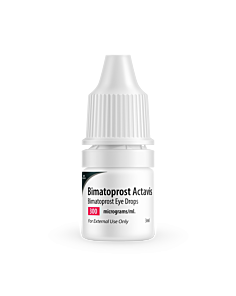 Bimatoprost Ophthalmic Solution Actavis Bimatoprost (With Brush) 300 mcg (0.03%)View ProductStarting at just $10.93
Bimatoprost Ophthalmic Solution Actavis Bimatoprost (With Brush) 300 mcg (0.03%)View ProductStarting at just $10.93




